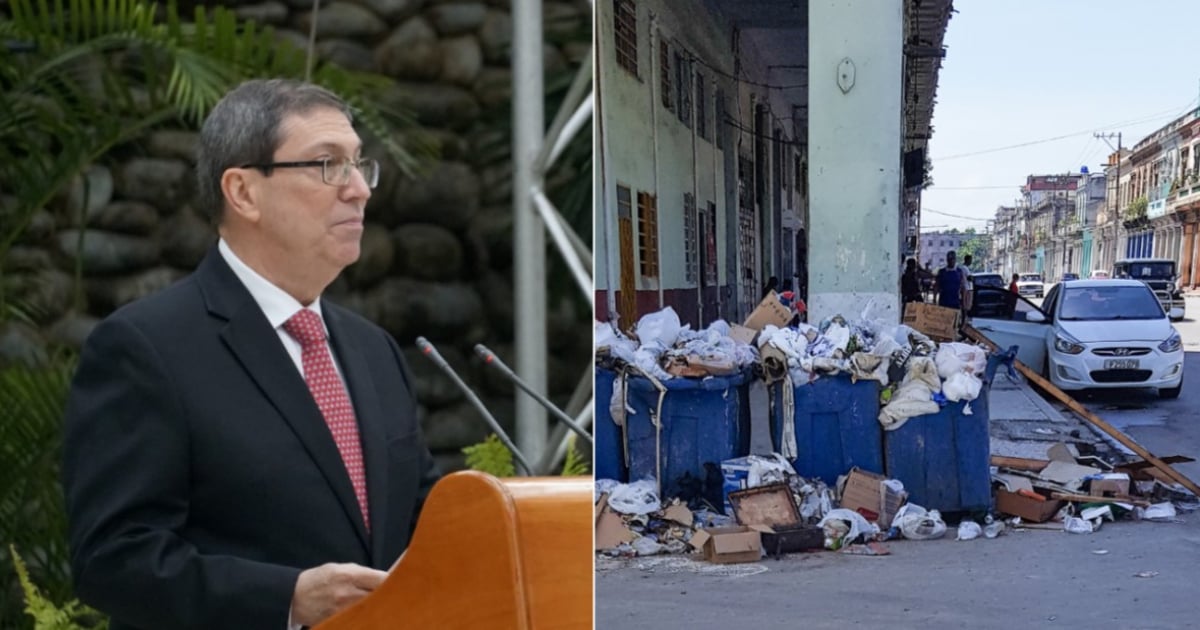Cubans have responded to Bruno Rodríguez Parrilla after he claimed that without the U.S. embargo, the island's Gross Domestic Product (GDP) would have grown by 8% in 2023. The Foreign Minister made these remarks during his annual press conference on the "blockade," once again attempting to blame the current Cuban disaster on external factors rather than acknowledging the regime's responsibility.
"The current challenges of Cuban reality would have a better and easier solution if Cuba could access the substantial resources that the blockade deprives it of," he asserted.
After decades of hearing the same rhetoric, Cubans are no longer fooled by false damage figures attributed to the blockade. They know that the only responsible entity for the crisis is the government, which insists on maintaining a planned and state-controlled economy despite its evident failure, and opposes the emerging private sector.
"Without you, the GDP would have grown by 100%," declared a Havana resident.
"If the current political and economic system (which we still haven't been able to define in reality) didn't exist, we would have had an annual GDP growth of 100%," affirmed an engineer.
"And if the PCC and its anti-democratic system didn't exist, Cuba could be a first-world country," emphasized a young man.
"These people are always exaggerating. The 'blockade' is just an excuse for their mediocrity," said a Cuban emigrant and family man.
"If communism didn't exist, more than 8% of the population contributing to the GDP wouldn't have had to emigrate," recalled a Cienfuegos resident.
"I'm not saying the economic and commercial blockade isn't part of the problem, but to claim that we would have GDP growth? With what? If we produce nothing? Tourism? Hahaha. Since COVID, that hasn't recovered," noted another engineer.
"If Cuba were free, we would have a country with great wealth because freedom brings prosperity. The only blockade is the government's blockade on the Cuban people. They have nothing because everything is stolen and destroyed. The same mipymes have debunked their constant lies. Why is it that they can import everything, and all you can say is the blockade?" questioned an emigrant.
"China's economy grew by 5.2% in 2023, one of the so-called emerging and fastest-growing economies. How is it possible that Cuba, without infrastructure, industry, agriculture, production of goods and services, etc., would have grown by 8%?" asked an internet user.
"If these leaders love their country so much, why do they prefer to see it die from a lack of food and medicine, see people struggle due to a lack of water, electricity, or transportation, see them leave due to a lack of opportunities? Ahh, I forgot that the leaders of this country don't face any of these problems. But they ask you to resist and fight for your homeland; that's very easy," said another.
"The Cuban economy will never grow as long as they maintain a centralized economy. Learn from China and Vietnam, learn before it's too late, although I think it's already too late," commented an agronomist engineer.
Understanding the Impact of the U.S. Embargo on Cuba
In this section, we address common questions and misconceptions about the U.S. embargo on Cuba and its real impact on the island's economy and daily life.
How has the U.S. embargo affected Cuba's economy?
The U.S. embargo has certainly impacted Cuba's economy by limiting its ability to trade freely with the United States and access certain financial markets. However, many experts argue that the primary reasons for Cuba's economic struggles lie within its own government's policies and systemic inefficiencies.
Could Cuba's GDP really grow by 8% without the embargo?
Many Cubans and international observers are skeptical of this claim. Given the current state of Cuba's infrastructure, industry, and production capabilities, achieving such growth seems highly improbable without significant internal reforms and investments.
What are the main obstacles to economic growth in Cuba?
The main obstacles include the government's adherence to a centralized, state-controlled economy, lack of investment in infrastructure, and restrictions on the private sector. The U.S. embargo is also a factor but not the sole or primary reason for the country's economic difficulties.
